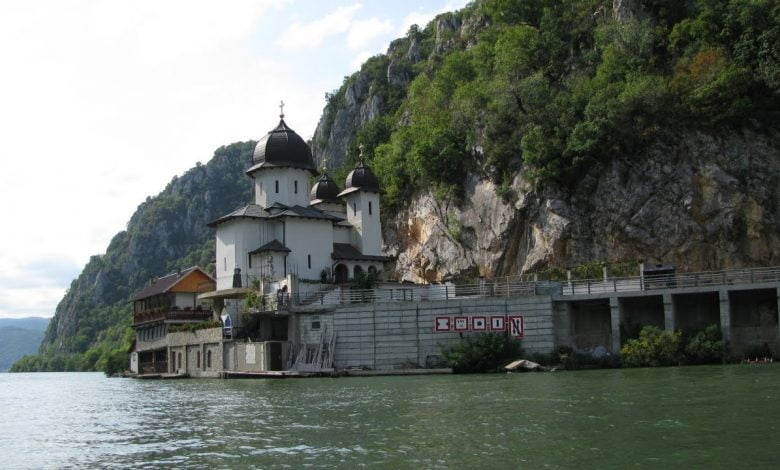The Danube basin

Geography
The Danube basin
The hydrogeographical source of the Danube at St Martin’s Chapel in Furtwangen im Schwarzwald: the Bregquelle, the source of the Danube’s longest headstream, the Breg, where the Danube is symbolized by the Roman allegory for the river, Danuvius.
The symbolical source of the Danube in Donaueschingen: the source of the Donaubach (Danube Brook), which flows into the Brigach.
The Danube’s source confluence in Donaueschingen: the Donauzusammenfluss, the confluence of Breg and Brigach.
Confluence of (from left to right) Inn, Danube, and Ilz in Passau
Danube in Linz, Austria
The Danube in Bratislava, Slovakia
Basilica of Esztergom, Hungary
The Tisza is the longest tributary of the Danube
Confluence of river Sava into the Danube beneath Belgrade citadel
Danube at Nikopol, Bulgaria in winter
The Danube in Sulina, Romania
0 km, Danube Delta, Ukraine
Where the Danube Meets the Black Sea (NASA Goddard image).
The Danube discharges into the Black Sea (the upper body of water in the image).
Classified as an international waterway, it originates in the town of Donaueschingen, in the Black Forest of Germany, at the confluence of the rivers Brigach and Breg. The Danube then flows southeast for about 2,730 km (1,700 mi), passing through four capital cities (Vienna, Bratislava, Budapest, and Belgrade) before emptying into the Black Sea via the Danube Delta in Romania and Ukraine.
Once a long-standing frontier of the Roman Empire, the river passes through or touches the borders of 10 countries: Romania (29.0% of basin area), Hungary (11.6%), Serbia (10.2%), Austria (10.0%), Germany (7.0%), Bulgaria (5.9%), Slovakia (5.9%), Croatia (4.4%), Ukraine (3.8%), and Moldova (1.6%).[14] Its drainage basin extends into nine more (ten if Kosovo is included).
